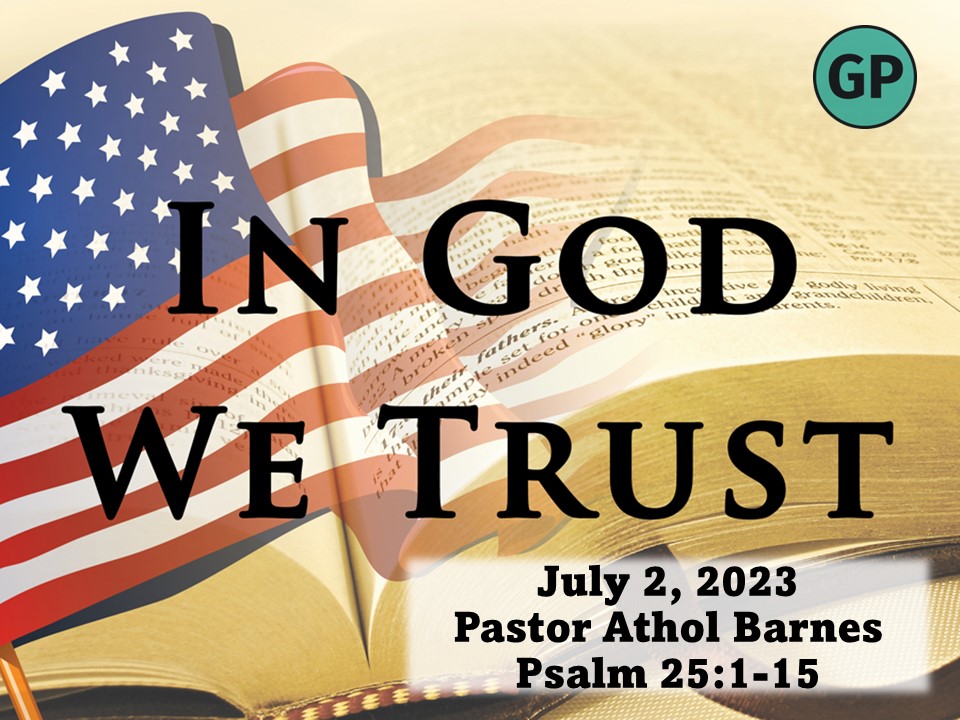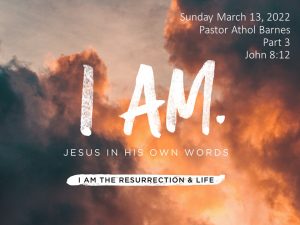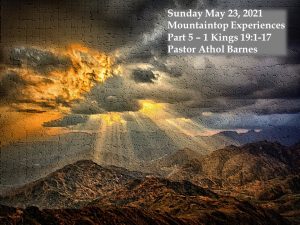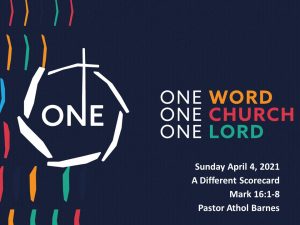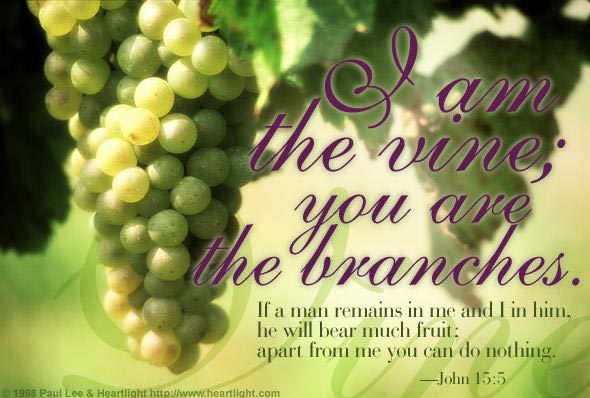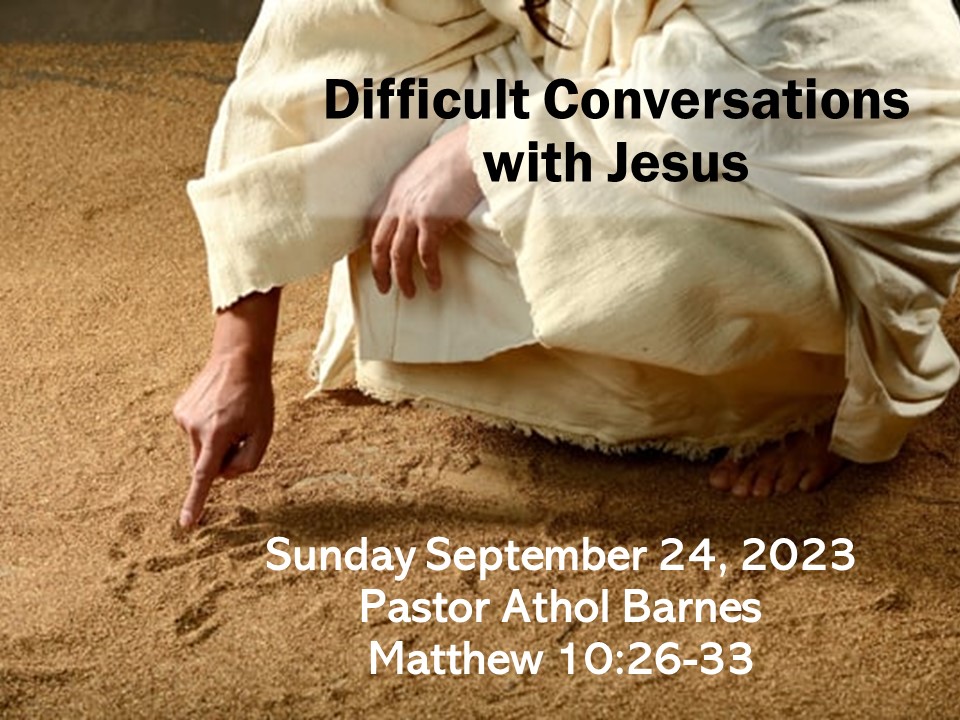
Fear of man is a weapon that Satan uses to prevent us from doing what God calls us to do. In many parts of the world, there is the very real fear of being martyred for being a follower of Jesus. But in America the fear we most often deal with is the fear of being ridiculed or “cancelled”, for standing for the truth of God’s word.
In Matthew 10, Jesus prepares his disciples to go out and proclaim the good news of the Kingdom. From verse 16 his teaching is directed towards all who would be his disciples in the generations to come. Jesus teaches us to be fearless in proclaiming the Gospel boldly (Matthew 10:27).
In this passage we have five reasons to have courage:
1. Jesus experienced it.
Jesus said in Matthew 10:25b, “If they have called the master of the house Beelzebul, how much more will they malign those of his household.”
By being mistreated for proclaiming the Gospel, we are simply being treated the way Jesus was treated. It is a sign that we belong to him. The insults bind us closer to the Lord. It brings great comfort to know that we are being identified as a child of God.
2. You will be vindicated.
Jesus continued in Matthew 10:26, “So have no fear of them, for nothing is covered that will not be revealed, or hidden that will not be known.”
When you know you are right, you don’t have to continue to argue, because you know that you will be vindicated. The same way with the truth of the Gospel, even though people may reject it, it is seldom helpful to try to argue with someone. You and I cannot do the work of the Holy Spirit in convicting people of their sins. Jesus said if they ridicule you for the truth, take heart, the truth will be revealed, and you will be vindicated.
3. What’s the worst that can happen?
We read in Matthew 10:28, “And do not fear those who kill the body but cannot kill the soul. Rather fear him who can destroy both soul and body in hell.”
The worst the anyone can do to someone who proclaims the Gospel, is to kill the body. This is a very real fear for millions of believers around the world. But as we know, the worst that man can do, God turns around for His glory and for our good. Killing the body of a believer is an upgrade to glory.
The second sentence of this verse has always struck me. Hell is a real place of eternal suffering, and Jesus spoke about it more than anyone else in the Bible. Hell is the penalty of God’s wrath and that is why Jesus said, “fear Him”.
It may seem like Jesus is saying, “stay in line, do what you are commanded to do, or else the One who has the power will destroy you?” But in the following verses, Jesus speaks about how much more valuable we are than the sparrows. Essentially Jesus is saying that we should fear God, but if we believe in him, we do not have to fear the wrath of God, because He is a good Father.
While it is true, the fear of the Lord is reverence and awe of God, but this teaching of Jesus really means, be afraid of God. Be afraid of the wrath of God towards sin. The only way this fear is removed is when we put our faith and trust in Jesus Christ as Lord (Romans 8:1-2).
Jesus is teaching that we need to see sin as something more serious than we could ever imagine. The real problem is that we don’t see sin for what it really is. We are sinning against the One who is infinitely holy and infinitely worthy of our worship. When we sin, we are displaying that something else is more desirable and worthy than God. When we understand that sin is an afront to and infinitely good, holy, powerful, and worthy God, then we become aware that our sin is infinitely deserving of eternal punishment. God cannot overlook sin; it goes against His character.
However, Jesus not only warns us, but he also rescues us and promises salvation (Luke 12:32).
Do not fear man, the worst that he can do is send your soul to paradise.
4. God sees you.
In Matthew 10:30 Jesus said, “But even the hairs of your head are all numbered.”
God sees you and He knows everything about you. When we suffer some hardship or persecution for speaking the truth, it is not that God is oblivious, on the contrary, He sees, and He knows the outcome even before we experience the persecution. The creator of the universe is with us, He is close, we can be of good courage and speak the truth.
5. God has a plan for you.
Jesus continued in verse 31, “Fear not, therefore; you are of more value than many sparrows.
God governs the world, He controls the lives of the sparrows and the smallest flowers, there is nothing that will happen to us that is outside of His perfect will. This truth has encouraged followers of Jesus for centuries. Henry Martyn said, “if God has work for me to do, I cannot die”.
This difficult conversation with Jesus is really an encouragement to live a life of freedom. Freedom from fear, expectations, criticism, and even the persecution of man.
If we succumb to the “cancel culture” of the day, it is because of one of two things; either we don’t believe the words of Jesus that he is the only way (John 14:6), or we don’t believe in Hell.
We need to be people who love the truth and speak the truth.
Are you going to fear man or are you going to fear God?


